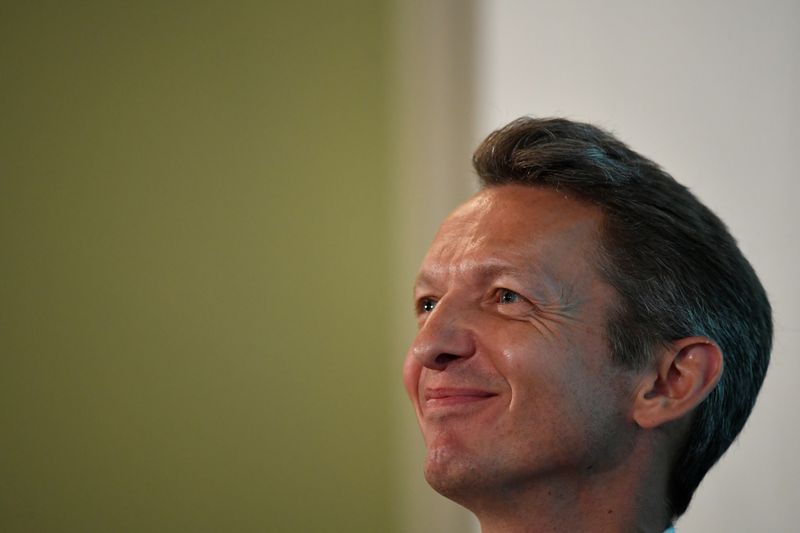By David Milliken
LONDON (Reuters) - Bank of England Chief Economist Andy Haldane said the economic outlook for 2021 was "materially brighter" than he had expected just a few weeks ago despite short-term uncertainty from a renewed COVID-19 lockdown in England.
Britain's economy shrank by almost 20% in the second quarter of 2020 - more than any of its peers - and at the end of September it was still 8.4% smaller than it was a year earlier, again a bigger shortfall than in other large economies.
Haldane, in an online speech to the financial sector trade body TheCityUK on Wednesday, struck a relatively positive note, in line with his previous assessments of Britain's recovery.
"The three R's - recovery, rebalancing, revitalisation - are more important than ever. So too is the need for optimism about the opportunities this crisis will serve up, as all crises do," he said.
Haldane said he believed third-quarter growth had surpassed expectations, though the immediate outlook for the fourth quarter was darkened by a four-week lockdown in England and similar measures in other countries of the United Kingdom.
Further ahead, prospects for 2021 were strengthened by recent news on vaccines, Haldane added.
Last week he described the development as a boost for businesses which had feared a persistent stop-start cycle of lockdowns.
BoE forecasts earlier this month came before drug companies reported successful COVID vaccines, but did factor in a lessening in the impact of the pandemic over next year.
BoE Deputy Governor Dave Ramsden said on Tuesday the vaccine news was positive, but did not necessarily warrant an upward revision to the BoE's forecasts.
The BoE is also in the middle of a review into the feasibility of cutting interest rates below zero in Britain, as central banks have done in the euro zone and Japan.
Haldane said that in the longer term, a digital currency issued by the BoE could make steps like this easier.
"To be clear, what I am discussing here is a structural shift in the monetary regime and carries no implications for the costs and benefits of negative interest rates in the shorter-term," he said.

"Nonetheless, I believe it is important these potentially large macro-economic benefits of a digital currency are explored when evaluating the case for a new monetary order. So far, that has not been the case," he added.